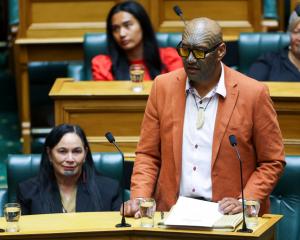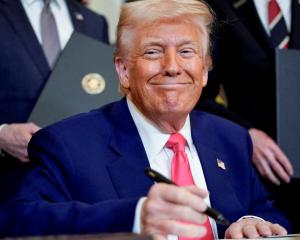
One headline suggestion is charging for access to national parks. This is one proposed measure in what is likely to be the biggest change for the Department of Conservation since it was established under the 1987 Conservation Act.
Last November, the minister put out two related consultation documents. More information has come forward since. Submissions are open until the end of next month.
Supposedly, changes will help Doc pay its way.
Doc receives about $650 million a year (83% from the government) and spends about $300m on biodiversity work. It says it needs $1.65 billion for this role alone.
Doc has 14,600km of tracks, more than 2000 huts and buildings, and more than 2000 toilet blocks. Despite the work of voluntary groups restoring remote huts and maintaining some tracks, maintenance is falling further and further behind.
Even should the earlier announced paid car-parking trial in key places (due to start next summer) continue, and fees are raised here, there and just about everywhere, the shortfall for money required would only be dented by, say, a couple of hundred million dollars.
One suggestion that emerged last week was ludicrous — charges of $57 a night for remote backcountry huts. Most are basic shelters, and fee collection would be unenforceable.
Charging locals for entry into national parks, owned by the citizens of this country, would discourage participation in nature and unfairly affect students and those with lesser incomes. The parks are the equivalent of outdoor libraries, places anyone can enjoy without payment.
Mr Potaka said conservation-related tourism is worth $3 billion-$4 billion a year. About 60% of overseas visitors (not Australians or most from the Pacific Islands) already pay the $100 visitor levy, with a large slice going to conservation. Tourists also pay GST worth many hundreds of millions of dollars a year.

The consultation documents note correctly that Doc concessions for commercial users of Doc land require an overhaul.
There have been suggestions for more forestry on Doc land and carbon credit income as well as increased mining fees. Given Doc’s responsibility for a third of the country and the national financial pressure, something might have to give.
The lowest conservation-value land under Doc’s control could become more exploitable so more money is available for the fundamental dual purposes of protecting nature and fostering recreation.
The consultation document discusses "enabling more flexibility for exchanges and disposals where it works for conservation", a worthwhile goal.
Disturbingly, though, the Doc shakeup could eliminate checks through the Conservation Authority and regional Conservation Boards. Doc has sometimes shown disdain for them as well as conservation and national park management plans.
Although Doc’s purposes at present under the Conservation Act "allow" for tourism, it has sometimes given permission to income-earning concessions in contradiction to those plans.
While the present system is complicated, time-consuming and unwieldy, more centralised power without balances will be dangerous.
Federated Mountain Clubs president Megan Dimozantos has warned about placing the sole authority to sign off conservation documents in the Minister of Conservation’s hands. "Recent history shows that if we have ministers who want to dig up or monetise conservation land — then we will move rapidly towards that," she said.
Doc has turned to business and charity to support some of its species and biodiversity work. While this is far from ideal, it might be inevitable.
There is general support for a Doc review and overhaul, but there is also concern and alarm. It must be hoped these significant proposals are not swamped by the other high-profile and important issues that are at present firing up the public and interest groups.













